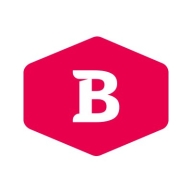

Pega Platform and Betty Blocks compete in the low-code development landscape. Based on the evaluation, Pega Platform appears to have the upper hand in features, while Betty Blocks excels in deployment simplicity and cost-effectiveness.
Features: Pega Platform offers advanced automation tools, robust AI capabilities, and a comprehensive set of high-grade features. Betty Blocks provides an intuitive design process, greater customization flexibility, and appeals to developers focused on innovation and adaptability.
Ease of Deployment and Customer Service: Pega Platform requires a steeper learning curve and longer implementation but provides strong support and detailed resources. Betty Blocks stands out with a straightforward deployment model enabling rapid implementation and easy integration, offering simplicity and responsiveness.
Pricing and ROI: Pega Platform generally involves higher setup costs, justified by substantial ROI due to its feature-rich offerings. Betty Blocks offers more budget-friendly pricing with quicker ROI through lower setup costs and faster deployment, providing immediate financial advantages.
| Product | Market Share (%) |
|---|---|
| Pega Platform | 6.1% |
| Betty Blocks | 0.8% |
| Other | 93.1% |


| Company Size | Count |
|---|---|
| Small Business | 11 |
| Midsize Enterprise | 15 |
| Large Enterprise | 69 |
From mobile apps to (customer) portals to back office management and everything in between. The Betty Blocks platform’s ease of use supports every size or complexity of your app. Go as far as you like, the easiest way possible.
Pega Platform provides flexible business process management with a focus on rapid application development and automation through a low-code approach, enhancing efficiency across sectors.
Pega Platform is renowned for its ability to streamline operations with robust automation features, including robotic process automation and decision-making capabilities. Its intuitive interface and workflow management contribute to a reputation for enhancing business processes. Although users face challenges with integration limitations and high licensing costs, they benefit from rapid deployment and efficient process adaptations. The unified architecture reduces complexity, while case management and integration services support digital transformations in sectors such as banking, insurance, and healthcare.
What are the key features of Pega Platform?
What benefits and ROI should users expect?
In industries like insurance, banking, healthcare, and government, Pega Platform is implemented to automate diverse workflows, supporting initiatives from claims processing to customer onboarding. Enterprises use Pega for case management and digital transformations, valuing its out-of-the-box integrations and real-time reporting capabilities to boost operational automation and enhance customer experiences.
We monitor all Rapid Application Development Software reviews to prevent fraudulent reviews and keep review quality high. We do not post reviews by company employees or direct competitors. We validate each review for authenticity via cross-reference with LinkedIn, and personal follow-up with the reviewer when necessary.